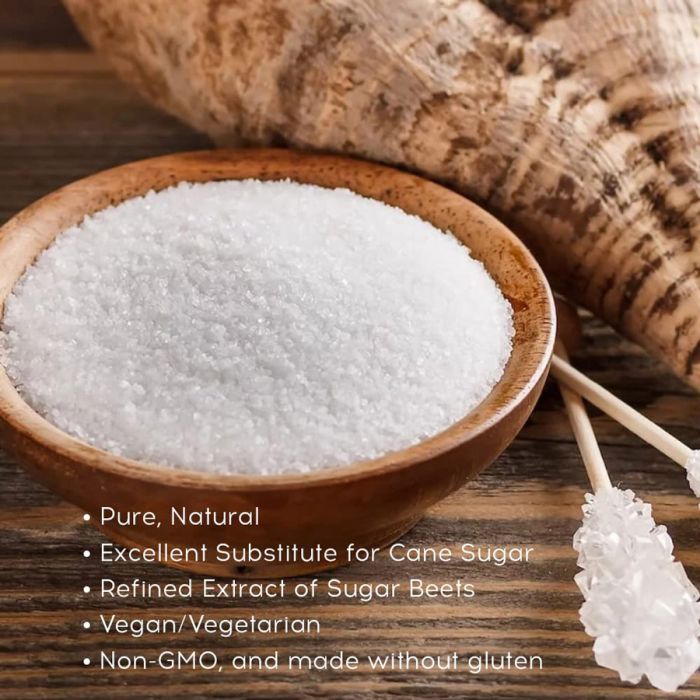Checking Out the Distinctions being used and Benefits Between Beet Sugar Vs Cane Sugar
In the culinary world, the selection in between beet sugar and cane sugar is not merely regarding sweetness however includes a nuanced consideration of flavor, application, and effect. While both sugars originate from different plants, each undergoes special manufacturing procedures that subtly affect their attributes and suitability for numerous recipes. As cooks and customers progressively prioritize both the ecological and flavor accounts of their active ingredients, understanding these differences ends up being vital. This expedition uses understanding into just how each sugar type can best boost cooking productions.
Origins and Manufacturing Procedures of Beet and Cane Sugar

Walking stick sugar, on the other hand, comes from the sugarcane plant, an exotic yard belonging to Southeast Asia and now cultivated in exotic areas worldwide. The production of cane sugar begins with the harvesting of cane stalks, which are crushed to release the juice. This juice is then steamed to focus it, after which it is rotated in centrifuges to produce raw sugar crystals. These crystals are additional improved to produce the white sugar frequently offered in stores.

Nutritional Material and Health Considerations

When contrasting the nutritional material of beet sugar and cane sugar, it ends up being noticeable that both kinds basically supply the exact same calorie worths, with around 16 calories per teaspoon and no significant nutrient diversity. Each is made up virtually completely of sucrose, which is an easy carb that offers fast power however lacks vitamins, minerals, or fiber. This similarity reaches their influence on wellness, especially worrying blood sugar level degrees. Both sugars, when eaten over, can add to elevated blood sugar degrees, a risk element for diabetic issues and various other metabolic disorders. Furthermore, extreme consumption can bring about weight gain and dental issues, as both sugars are equally cariogenic, advertising dental caries. From a health and wellness viewpoint, moderating intake of any type of sort of sugar, whether from beet or cane, is advisable to prevent these possible adverse effects on wellness. Thus, neither holds an unique advantage over the other in terms of health and wellness advantages.
Taste Profiles and Culinary Applications
Regardless of their comparable chemical frameworks, beet sugar and cane sugar differ discreetly in flavor, which can influence their use in various cooking contexts. Cane sugar commonly brings a tip of molasses, also in its polished form, lending explanation a warm, caramel-like undertone that enhances baked items, coffee, and chocolate-based dishes. On the various other hand, beet sugar is characterized by its extremely fine-tuned, neutral preference, making it a flexible sweetener that does not alter the flavor accounts of meals.
Environmental Impact and Sustainability
While both beet and cane sugars are originated from plants, their ecological impacts vary substantially because of the unique approaches of farming and handling needed for each and every. Sugar beet cultivation often involves considerable automation, which can enhance nonrenewable fuel source consumption and carbon emissions. Nevertheless, beetroots can be grown in cooler climates and require much less watering, potentially minimizing water usage compared to sugarcane. Sugarcane, on the various other hand, is generally grown in exotic areas where it depends you could check here greatly on irrigation and a much longer growing period, increasing its water footprint.
Additionally, the handling of sugarcane typically produces a significant quantity of waste, consisting of bagasse, which, although useful as biofuel, regularly adds to air pollution if burned inefficiently. Sugar beet processing makes use of more of the raw materials, causing much less waste. Both sectors encounter obstacles in minimizing their ecological impacts, however continuous advancements in farming practices and waste administration are intending to improve sustainability.
Economic Variables Influencing the Sugar Industry
The economic characteristics of the sugar sector are substantially affected by international market needs and profession policies. In areas where sugarcane or sugar beet production is subsidized, manufacturers might have a financial benefit that allows them to offer lower prices on the global market.
In addition, fluctuations in international demand for sugar, influenced by nutritional patterns and commercial use in food products, directly effect rates and production degrees. find this beet sugar vs cane sugar. Climate condition also play a critical function, as they can considerably affect plant yields and, consequently, the supply chain. This variability presents a degree of economic unpredictability that can bring about investment volatility in sugar manufacturing industries, influencing decisions from planting to market approach
Final Thought
Finally, both beet and cane sugar have one-of-a-kind top qualities that fit various cooking requirements. While cane sugar imparts a rich taste ideal for enhancing baked goods, beet sugar's neutrality is ideal for lighter meals. Nutritional similarities regardless of, their distinctive production processes and environmental impacts add intricacy to the choice in between them. Thus, understanding these differences helps cooks and customers make informed choices that line up with their health, culinary, and ethical preferences.